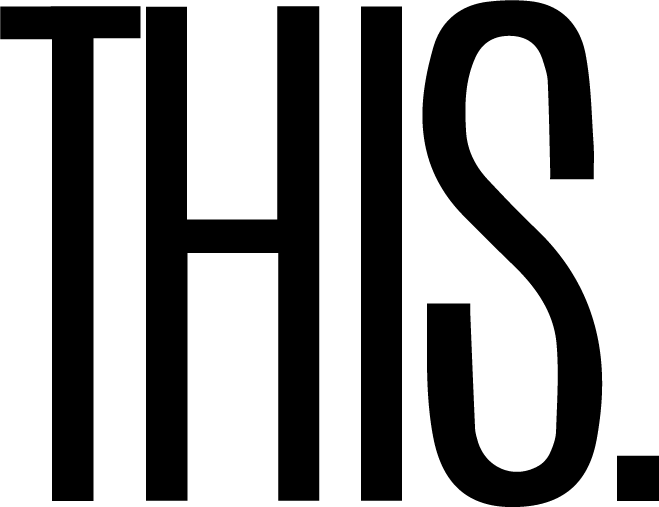Negativity and selfishness gets great publicity in our social networking, indirect-contact society. You’d be led to believe the world’s running low on good people and that no one cares for or respects one another anymore. Their only concerns are themselves; and when they’re in need, no one is willing to lend them a hand without reward.
This is not the case. Kind, caring, selflessly-generous people still exist. Ashanti Branch is a shining example.
An award-winning educator, speaker, and mentor, Branch founded the critically celebrated Ever Forward Club. His 501(c)3 non-profit organization provides support for young African American and Latino women and men who are not achieving to the level of their potential in school. In addition to youth programs, Branch’s Club hosts personal development workshops for businesses, communities, and individuals.
A Teacher of the Year recipient born and raised in Oakland, California, Branch’s desire to cultivate connection and learning using self-reflective art would manifest in the global Million Mask Movement. By creating masks, his movement helps young people, adults, and communities around the world gain a deeper understanding of how much we have in common.
While good at what he does, he’s also a good person and one who believes in helping others.
I asked Ashanti Branch to tell me about a time when he did something nice for someone that he didn’t know. Here’s what he shared.
“I’ve had a time trying to think of a story because I don’t really think about doing something nice for people that I don’t know because I just do it. I don’t know how to think about when I do something nice for someone because, subconsciously, I’m trying to do something nice all the time. It feels hard, actually, talking about it in a way that’s not feeling like I’m bragging about being a nice person when I just want to be a nice person.
But something came to me because I was able to process it in a different way.
I want to tell you about how the Million Mask Movement got started. That’s an interesting story. And don’t think of it as doing something nice. I’m just trying to be a good person.
So, the Million Mask Movement… We were at Claremont Middle School in 2016, the After School All-stars Program was based there. We taught a social, emotional leadership class. It’s kind of where the Social, Emotional Leadership Academy was born. We were teaching a class of young men who were getting a chance to do this emotional work.
I remember these young men having some barriers. I talk about emotions all the time. I had to be reminded by a friend that maybe, for them, it’s actually pretty hard to talk about themselves all the time. I would think that wouldn’t be easy to do, right? To talk about yourself, to talk about how you’re feeling and how you’re doing.
But imagine if that’s not new to you. It could be exhausting. If you’re trying to forget about all this stuff you’re forgetting about, stuff you don’t want to think about, but then be asked to think about it every day… I started realizing where some of the barriers were. I realized we had to mix it in, that we couldn’t be reflecting on ourselves in our own lives every day because for some middle schoolers, and for some adults, that’s difficult to do.
So, we’re at Claremont Middle School, I think it’s before class or after class, but I get a phone call.
‘Hey, you know, I want to tell you that activity that you did, it makes the classroom really unsafe.’
That’s kind of how the context of the words were. And I was like, wait… Unsafe? What are you talking about? I haven’t given anybody an activity to do. Then the person on the phone, which is an educator from somewhere around the country, said, ‘Well, I did the activity that you gave in the documentary with my students, and it made the classroom unsafe.’
I remember saying, well, I hope you didn’t watch that 3-minute clip of our work in the documentary The Mask You Live In, and then do it with your students without having a lot of context; without really loving them and caring about them because I’m asking students to be revealing about themselves.
I realized when I hung up the phone from that call, not only have we been in the room filming for an hour and a half, I worked with those young men for months. I saw those young men. They weren’t in my class every day, but I was the dean, so I would see them either when they were walking the halls or coming in class. Whatever I needed to do and connect with them. Maybe they were getting kicked out of class! I had a relationship with those young men, and they knew I cared about them even if they didn’t always like what I had to say.
In building out the model, realizing that the activity we did in that moment – if you’ve seen the documentary – I had done a lot of homework! I had invested in them emotionally. I invested in their lives! I bought them food! I had an investment in them. I didn’t just ask them to tell us about what was happening behind the mask as if it was a task on a checklist! I was caring deeply, and I wanted them to know they had a safe place to do it even though I knew it was hard.
I remember being in my office, irritated, like how are they going to blame me for making their classroom unsafe? But I realized if that person was willing to call me and blame me, then there were probably many people who were blaming me in silence. People who were like, ‘That stupid thing doesn’t work. What is he talking about? That thing doesn’t work?’
I realized at that moment I needed to create it so we could give it away, literally!
That [following] Sunday I remember going to church and I asked a young man, ‘What if I was to give you this thing? What would you do?’ I knew the task. The task was the front of the mask, the back of the mask. First step: draw a mask.
We had already made hundreds of thousands of masks, but we hadn’t been doing it to give them away to somebody. It was always through a live workshop. But what if I was to get somebody to do it outside of where I was? And that’s how the first Mask Card was created! It was not me trying to create a global movement, what we have right now. It was me trying to find a way to do this activity with people where I would not be! I wanted teachers to have a way to give it to their students. We created the card.
Originally, I didn’t want to give it away. It was the only thing we had as a non-profit that people could invite us in to do work. Our workshops back then were like $250. We were just starting, and we were just starting to get people to bring us in to do these workshops. We had a 3-part series, we were trying to create the thing… We were just moving fast. People were making masks. They were making masks all over! We had our first one, then we evolved it a little bit. We got a little fancier. I was trying to make it better.
I was at a Saybrook University annual retreat, and a professor there said you should ask for some information. All we asked for was gender. So, we said tell us your age group, city, age and gender. Then someone said why don’t you just take all the boxes off and let me just write my age. And the next version was just age. That’s pretty much the version we have now with our social media stuff, our phone number, our website, we have the place where people can go and create masks.
So, the person who called kind of blaming me for something I didn’t really think was my fault, but ultimately what can you do about that. I just had to learn and grow from it. Then we decided we were going to give this campaign away. We didn’t have funding. We didn’t say let’s go raise a bunch of money so we can give all these cards to teachers around the world. That probably would have been a good decision if we were thinking of it as a good business proposition.
We took the money we’d been raising, we took the money that people used to support our work, because we felt this was part of our work and we were serving the community. We have mailed out over 150,000 cards to teachers all over the country. I was kind of having a hard time giving it away because that was part of our earned revenue. What are we going to do? Then one of my mentors, Orlando, he said, ‘Ashanti, do you want to have an impact, or do you want to make money?’ Because it’s about your focus.
So, we gave it away. Over 150,000. Over 500 educators signed up to be a part of this. Some educators said they would print their own which was a big help to us because we just needed to send them a digital file and the curriculum guide. And we sent the curriculum out to over 500 teachers.
Once we realized that the movement was happening, we realized something else was happening. Teachers from other countries were sending messages to us. I got invited to Australia to present at a principals’ conference in Queensland! And I presented to a school in Columbia!
We didn’t have money to mail cards all over the world. And how are those educators going to mail the cards back to us dealing with their own rules about customs and money? There were so many barriers. That is why when we received the LinkedIn Compassion Award, we were a Top 3 finalist, we used that investment to create the 100KMasks.com site!
In this idea of me trying to think of what I do nice for someone, I didn’t think of it like that. What I was trying to do in the work that we do at Ever Forward was to create resources for educators to build community with their students.
Students are going through so much stuff. Maybe you’re going through so much stuff. Parents, maybe you’re going through it. All the layers of things that we know are a part of going to school. What we hope is that the Million Mask Movement will be able to support them to build community with their students – those that are going to be online and those that are going to be in person. We are inviting them to use this tool, 100KMasks.com, to recognize there’s so much more!
I think that this journey of where we are in the Million Mask Movement is a testament to building community and connection.
I’m just so thankful for this work right now. So thankful for being able to do the work that I feel has called me to where we are today!
I hope that if you are doing work in your life that is bringing you to a place of joy and peace. It may be hard work, but you feel fulfilled.
There’s nothing like it. |THIS.
[By Mr. Joe Walker]
Every Monday our Shining Example column features a remarkable person sharing an inspiring personal story about an act of kindness.
Post-Credits Bonus:
“We are the ones who make a brighter day, so let’s start giving.” – ‘We Are the World’


